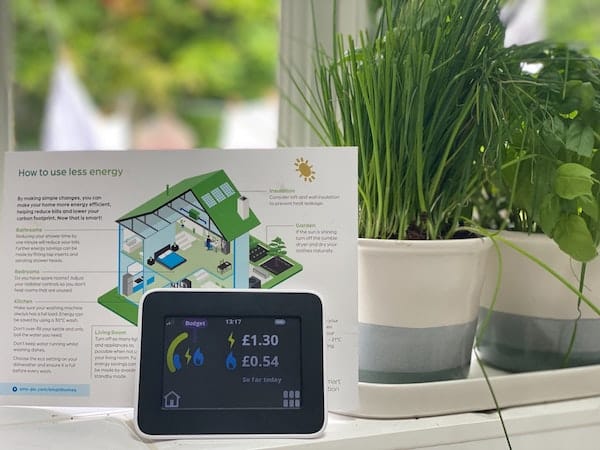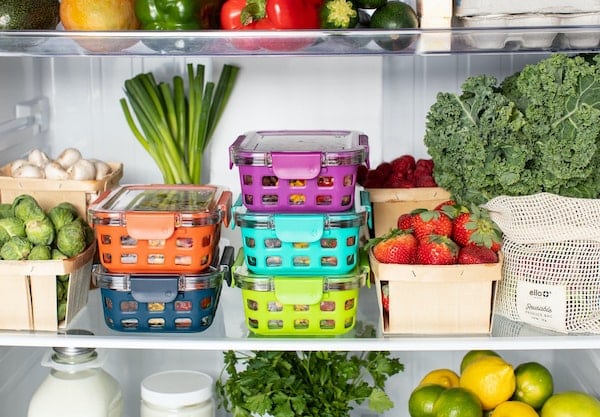Last month, I issued a call via LinkedIn to say that Magenta was looking for an energy management expert – someone to come in and talk to the team about the little things we can do or invest in to reduce our bills and still live comfortably this winter. Within minutes, Jeremy Campbell, executive director at EMCOR UK, replied to say his team would be happy to offer support with their net carbon expertise. Two weeks later, we welcomed Kam Singh, EMCOR UK’s director of carbon solutions, to our humble ‘M Towers’ here in Brighton.
The purpose of the domestic energy workshop was to give the ‘M People’ – as we call ourselves –ideas as to how they could spend their Magenta Energy Grant, a new initiative we’ve launched as part of our wellbeing programme. Each Magenta employee can apply for a cash lump sum of up to £1,000 (that they don’t have to pay back) to better insulate or heat their homes. Given that quality of life is dictated by access to energy, it’s something we felt would make the biggest difference to our team’s health and happiness.
In summer 2021, the average 3-bedroom semi-detached house commanded an energy bill of £1,103. In October 2022, that same house that uses the same amount of energy would now pay £3,630 if it wasn’t for the Government’s energy cap. That’s an increase of 230%. Even with the cap, households across the UK will struggle to pay their bills this winter. But there are little things we can do to lessen the burden.
Kam walked us through the following steps on how to reduce our energy bills:
Unleash your inner data geek
The only way you can manage a budget is if you know what you’re spending, said Kam. That’s the first step – understanding the energy you’re using, when you’re using it, and how that’s impacting the bills. If you have a smart meter, there’s an app called HUGO which will make this process much easier. If you don’t have a smart meter, you can invest in smart plugs that measure the amount of energy being used by a particular appliance, gadget, or light fixture. Take readings regularly to paint a full picture of how you’re using energy and, more importantly, what changes could be made to lower the bills without compromising comfort.

62.8% of household energy goes towards heating, with a further 15.1% on water heating; lights and appliances use 14.5%, and the rest is made up of things like cooking. Heating makes the biggest dent in the bills, so managing that so you’re comfortable but not wasteful is key.
Unleash your inner control freak
Kam surprised us all by saying reducing your thermostat by just 1 degree can save an estimated 10% on your gas bill. So, if you set your house to 20 degrees, see how 19 degrees feels, and perhaps invest in and wear a few more layers to stay cosy.
Then you can try setting different temperatures in different rooms. For example, the bedroom doesn’t need to be as warm as the living room, presuming you spend most of your time in the latter. Plus, it’s proven that we sleep better in cooler temperatures. Could you reduce the temperatures in your hallways and kitchen without noticing too much of an impact? If so, that will make the final figure that little more palatable. Boilers only need to be set at 80 degrees and hot water should be stored at least at 60°C and distributed so that it reaches a temperature of 50°C within one minute at the outlets, so have a look at your settings and make the necessary adjustments. Tweaking the temperatures just slightly will reduce energy consumption and therefore the figure on the bills.
Unleash your inner Sherlock Holmes
Consider where your home is losing that precious heat you’ve paid so much for. Check the doorways – notice any drafts coming in? You can light and hold up an incense stick if you’re unsure. Invest in some draft stripping. It’s super cheap and is a very effective first port of call. Buy some keyhole covers if you can feel cold air coming in through the gaps. It will make a difference and it doesn’t cost much.

In making your homes as airtight as possible, you need to look at the windows, walls, and roof. There are certain grants available to subsidise the costs involved in improving your home’s insulation, so check with your local authority. And if you’re renting, speak to your landlord to request better insulation if required. It doesn’t hurt to ask. If they decline, consider doing it yourself – although make sure you take the materials with you when the time comes to move house, so the landlord doesn’t profit from your efforts.
Unleash your inner Inspector Gadget
Check out these different appliance-based tips to help you reduce your energy bill:
The Washing Machine
Washing machines suck up a lot of energy but changing the temperature from 60°C to 40°C will save a third of energy use. Your clothes will still be washed properly. In fact, washing at 30°C will always be fine except for particularly tough stains.
Only use the washing machine when there’s a full load and try and reduce your weekly volume of washes by one – it will make a big difference. Avoid using the dryer as that’s costly. However, if you have no other option or space to hang clothes, stick a dry towel in with the wet clothes and that will absorb moisture and reduce drying time significantly (thanks to Magenta’s employee experience manager Carrie for that tip!).
The Fridge/Freezer

Make sure your fridge / freezer is well sealed and remember it doesn’t have to look or feel like an Ice Age in there to be effective – turn the dial down if it’s set on max or if water droplets at the back have turned into ice (that means it’s too cold). Don’t make your fridge/freezer work harder than it needs to. This includes ramming it full of food. Fridges rely on air flow, so don’t block that flow.
The Oven
When it’s time to cook the food, consider swapping the oven for a microwave if you can – a microwave uses 900 watts of energy, compared to an oven that uses 7000 watts. Other cost and energy efficient cooking appliances include air fryers, which are apparently cheaper to run than a microwave. So add that to your ‘Dear Santa’ list, along with a new cookbook. Air fried foods are supposed to be healthier too. Win win.
The Dishwasher
Finally, some good news. Dishwashers are more efficient than washing up. Hurrah. They’re even more efficient if you use the eco mode or the ‘quick wash’ function. If you’re worried doing so won’t properly clean the dishes, give it a go and see.
EMCOR UK’s vision is for a better world at work and they deliver this vision by working with their partners to make a real difference. We’ve certainly benefited from their approach, so a massive thank you goes to the EMCOR UK team, particularly Jeremy and Kam. Winter is coming. But we’re ready for it.








